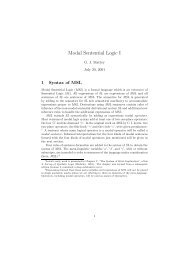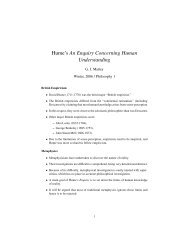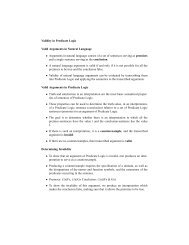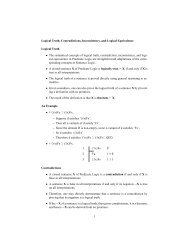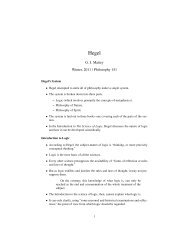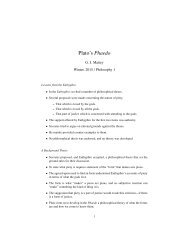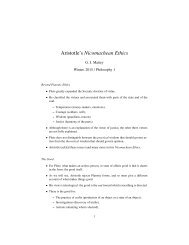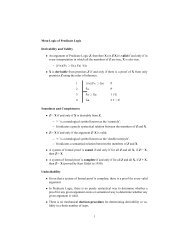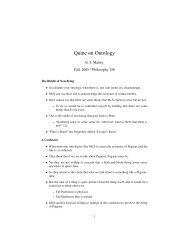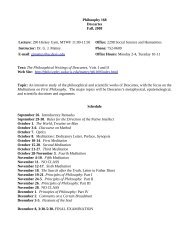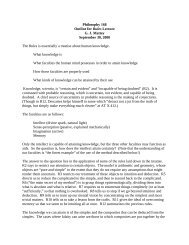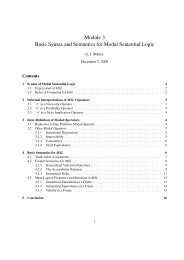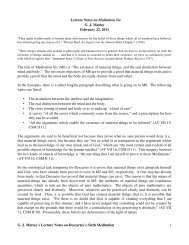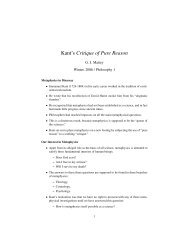Kant's Grounding for the Metaphysics of Morals - the UC Davis ...
Kant's Grounding for the Metaphysics of Morals - the UC Davis ...
Kant's Grounding for the Metaphysics of Morals - the UC Davis ...
Create successful ePaper yourself
Turn your PDF publications into a flip-book with our unique Google optimized e-Paper software.
Against Rationalism in Ethics<br />
• Some moral philosophers try to derive moral principles analytically from a concept<br />
<strong>of</strong> perfection:<br />
– Divine perfection, or<br />
– Ontological perfection (maximal degree <strong>of</strong> reality).<br />
• But a definite conception <strong>of</strong> divine perfection can only be constructed in two<br />
ways:<br />
– From ourselves, in which case we do not need to appeal to divine perfection,<br />
– From ideas <strong>of</strong> domination and vengenace, which have no place in morality.<br />
• We have no definite conception <strong>of</strong> ontological perfection (maximal degree <strong>of</strong><br />
reality).<br />
• Because it is empty, ontological perfection at least does not conflict with morality,<br />
and so it is better.<br />
• It is also better than any empirical concept, because it is not corrupted by a<br />
connection to experience.<br />
Rational Man and Natural Man<br />
• In Section Three, Kant discusses <strong>the</strong> question <strong>of</strong> how <strong>the</strong> categorical imperative<br />
is related to human beings.<br />
• If a human being has a rational will, it is autonomous and lays down <strong>the</strong> moral<br />
law <strong>for</strong> itself.<br />
• But human beings exist in <strong>the</strong> natural world and act in that world according to<br />
<strong>the</strong>ir desires and inclinations.<br />
• In order <strong>for</strong> it to be possible <strong>for</strong> humans to have an autonomous rational will,<br />
it must be possible to conceive <strong>of</strong> <strong>the</strong>m as beings acting independently <strong>of</strong> <strong>the</strong>ir<br />
desires and inclinations.<br />
• To do so, we must distinguish humans as appearances in nature and as things in<br />
<strong>the</strong>mselves that are not subject to natural “springs” <strong>of</strong> action.<br />
• Thus, our rational will, which is <strong>the</strong> basis <strong>of</strong> morality, must be conceived as a<br />
member <strong>of</strong> an intelligible world, in which we would do what in nature we ought<br />
to do.<br />
10



